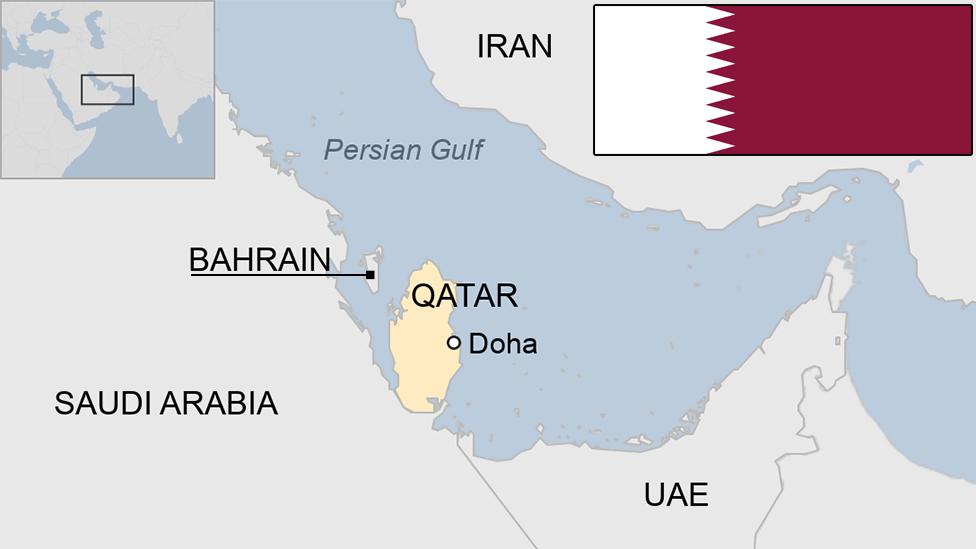Qatar crisis: The deep diplomatic tensions behind the row
- Published
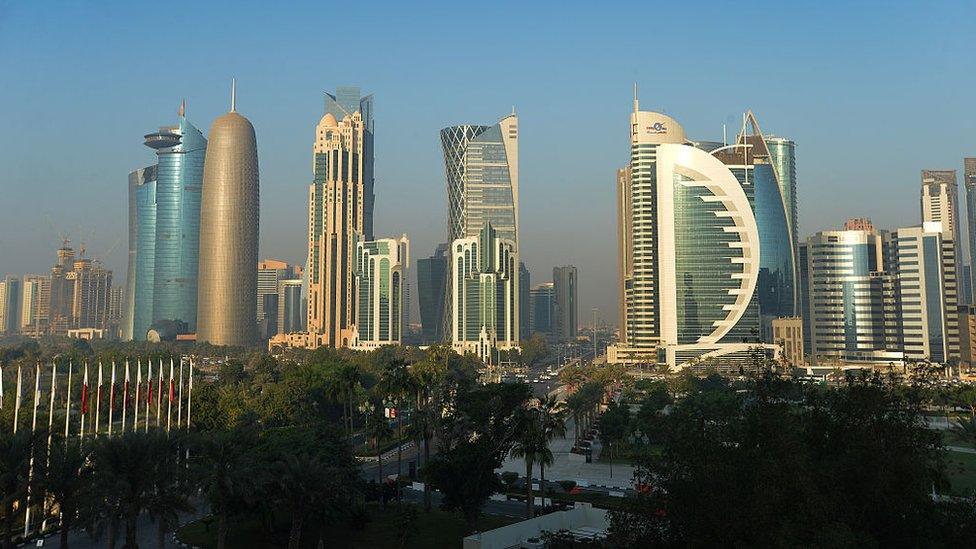
Sometimes the recipe for a dispute says "leave to simmer". This one has been simmering for years. But then suddenly some of the cooks increase the heat substantially and dispute boils over into full-blown crisis.
The underlying tensions between Qatar and three of her Gulf neighbours in particular have been visible for two decades. This is a region largely of absolute monarchs - kings or emirs - who have in common a very firm grip on politics at home, to head off any dissent which could represent a threat to their individual regime survival.
But the emir of Qatar pursues a series of policies which simply don't fit into the rigid orthodoxy expected by most of the others, notably Saudi Arabia, the superpower of Sunni Islam.
His unconventional foreign policy is seen as a threat to Sunni solidarity, particularly because the emir and his ministers promote dialogue and a search for good relations with the rival regional superpower, Shia Muslim Iran.
Saudi Arabia is deeply hostile to that approach and now feels empowered to turn that hostility to action, in the certain knowledge that a new president, Donald Trump, is at Saudi King Salman's side.
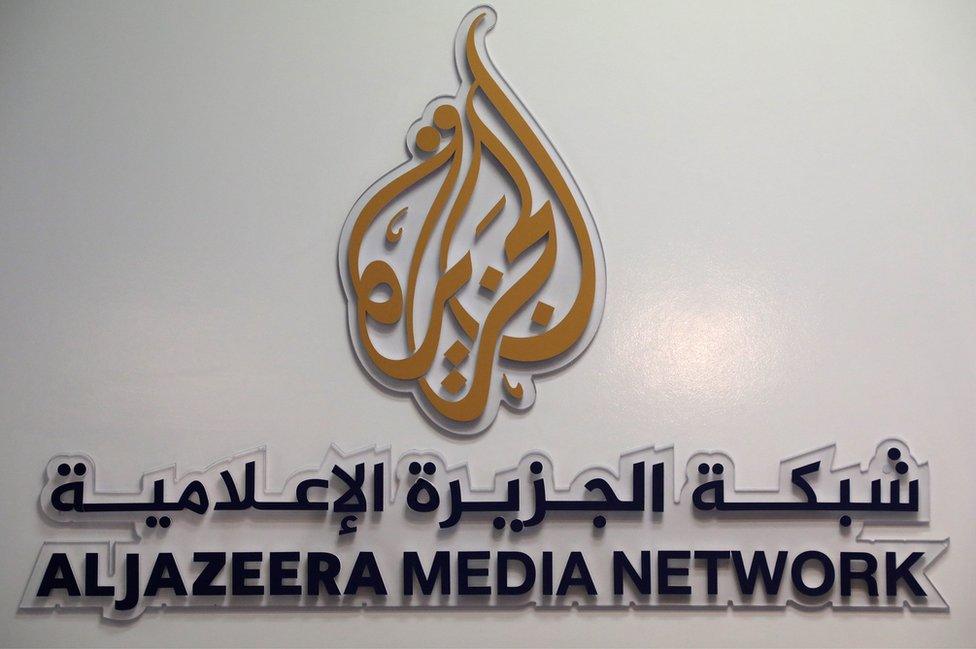
The Qatar-based Al-Jazeera network is at the centre of the row
The core charge laid against Qatar as justification for this week's new and punitive blockade is the country's alleged funding of religious extremists, including the secret arming of some jihadi groups.
Those are charges rejected by Qatar's government and similar ones have also been levelled in the past at many of those now condemning the country, notably Saudi Arabia.
But the single most powerful motive behind the blockade may be a quite different one: the desire to rein in, or even to close down, one of the emir of Qatar's most cherished projects - the global television news channels of Al-Jazeera.
He sees Al-Jazeera as an agent of positive change across the Arab world, opening up political debate, reporting on the challenges from ordinary people from the street, so evident during the "Arab Spring".
However odd, even hypocritical it may seem for an absolute monarch in Qatar, a country devoid of elected politicians, to champion the cause of disaffected citizens demanding change elsewhere, that is a large part of what drives this emir, set on what he regards as a path of Middle East modernisation.
His fellow autocrats see things quite differently, in Egypt as well as the Gulf. There, President Sisi drove the Muslim Brotherhood out of elected government and to near oblivion, branding them as intolerable Islamists.
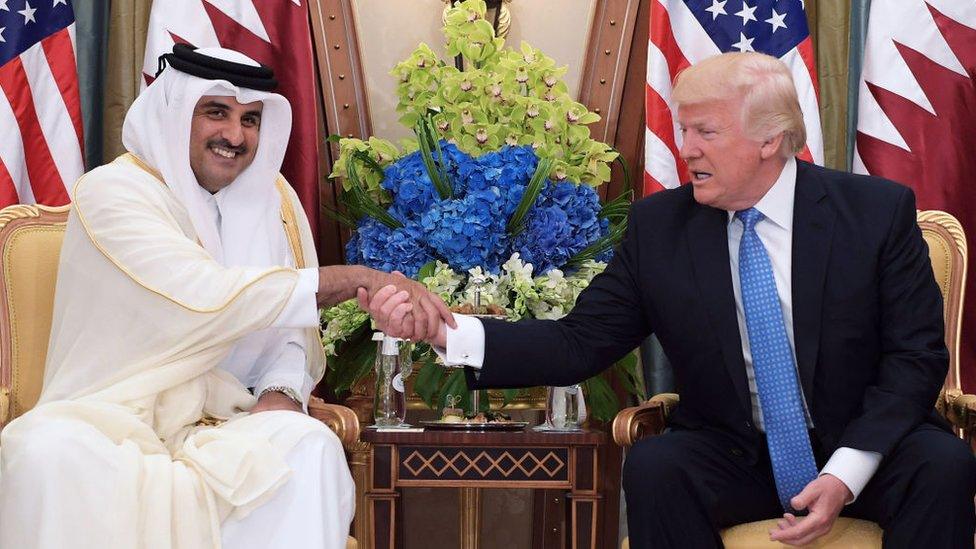
Qatar's Emir Sheikh Tamim Bin Hamad Al-Thani met Donald Trump in Riyadh, Saudi Arabia in May 2017
Al-Jazeera was painted as a propagandist for the Brotherhood. That's a portrayal other leaders who have been challenged by the station are happy to endorse, leaving the broadcaster as now another substantial target of the action against Qatar.
So, how will this crisis end?
There's no sign of any real progress towards a settlement yet, rather the reverse. The rift seems to be both deeper and wider than it was at the start of the week.
Deeper because the accusations being thrown about on both sides are becoming harsher. The United Arab Emirates is amplifying the charge that Qatar encourages extremism.
Qatar, through its Human Rights Council, is saying Saudi Arabia, Bahrain and the UAE together are abusing the human rights of all those caught up in the programme of expulsions and flight bans, separating families for whom the borders between Gulf Co-operation Council (GCC) countries have never been closed in this way before.
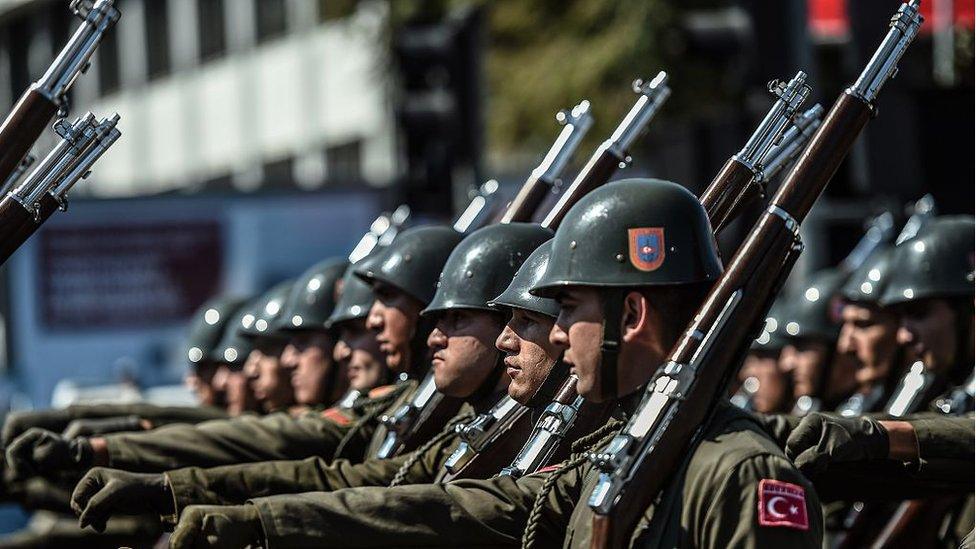
Turkey has passed a law allowing for an accelerated deployment of its troops to Qatar
And it is becoming a wider rift as more and more outside countries weigh in and take sides.
Several member states of the Arab League have lined up behind the anti-Qatar campaign. Equally, both Turkey and Russia are consolidating their positions as friends to Qatar.
Turkey passed a law in near record time this week which would allow an accelerated deployment of Turkish troops to Qatar: something already possible but on a longer timeframe. Russia has invited Qatar's embattled foreign minister for talks in Moscow which Qatar hopes to use to maximise support.
Meanwhile, the emir of Kuwait, playing a customary role as peacemaker within the GCC, faces his toughest task yet, shuttling between the royal courts of Gulf capitals trying to find a way through which somehow curbs Qatar's sovereignty - the demand of others - and does not curb that sovereignty, the insistence of the emir who rules in Doha.
There's no sign yet of any such progress being made. This feels like a crisis which will be maintained at high temperature for some time.
That alarms much of the outside world, fearing even greater instability in the Middle East, and this time instability in the area they normally rely on for dependable, but certainly not democratic, calm.
- Published6 June 2017
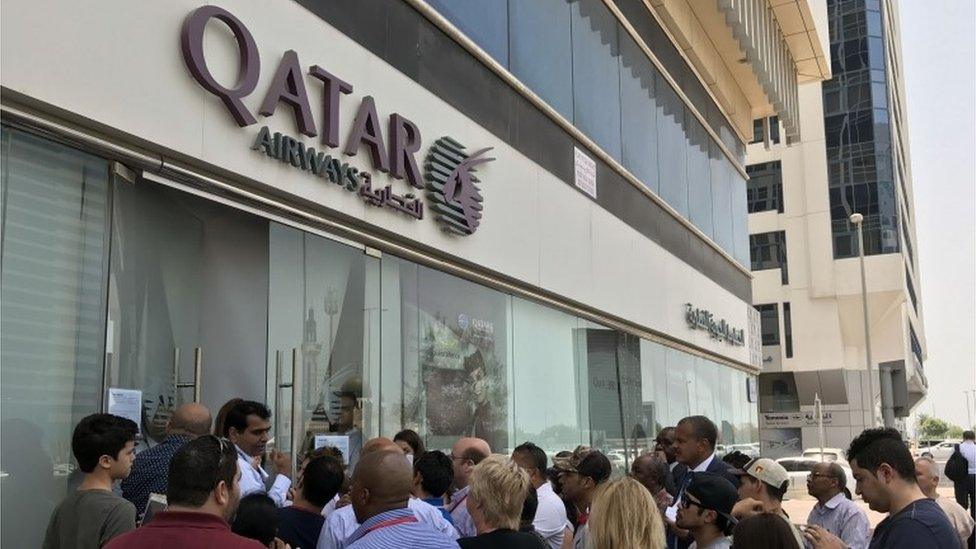
- Published5 June 2017
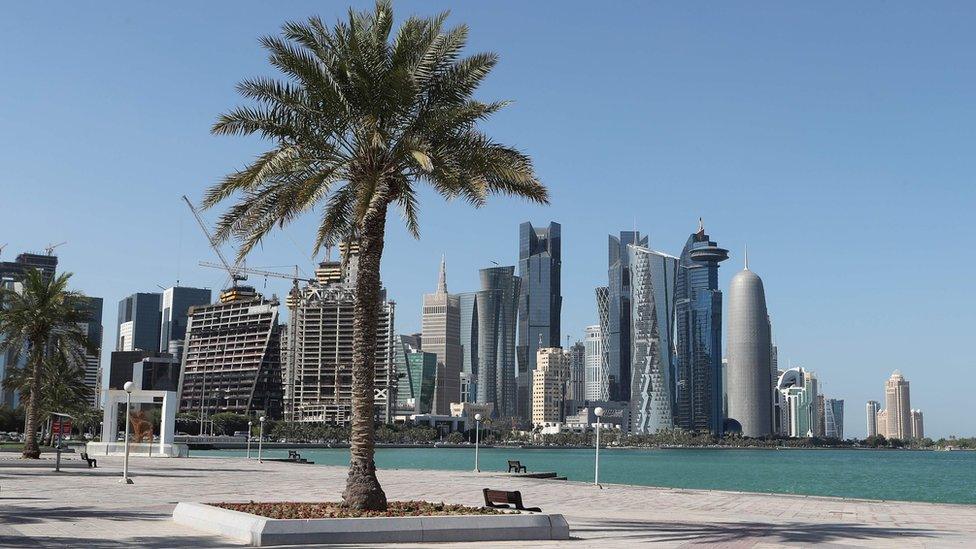
- Published25 June 2013
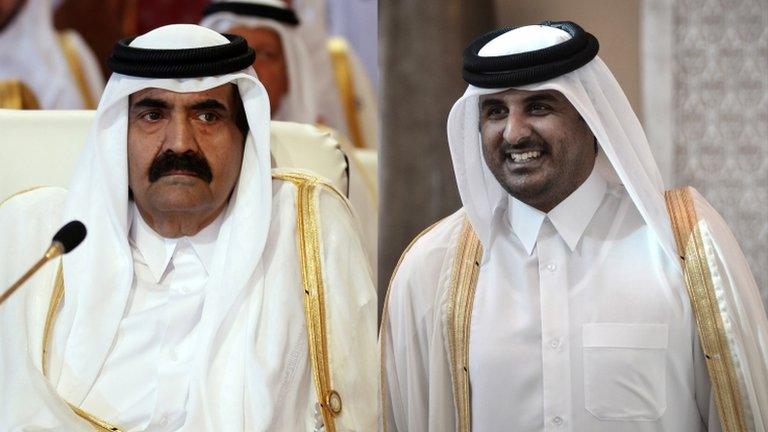
- Published7 September 2023
